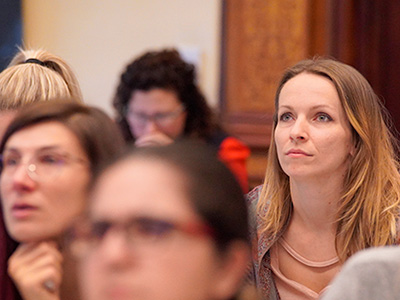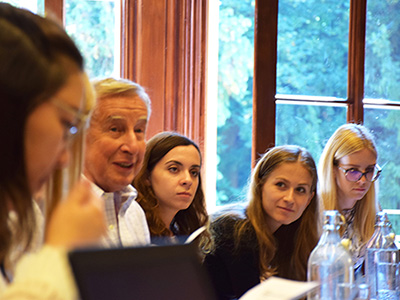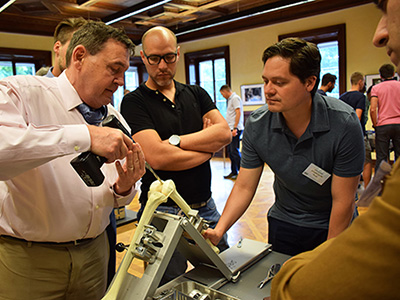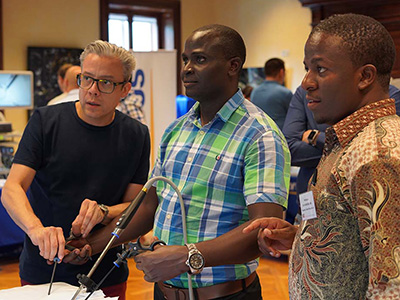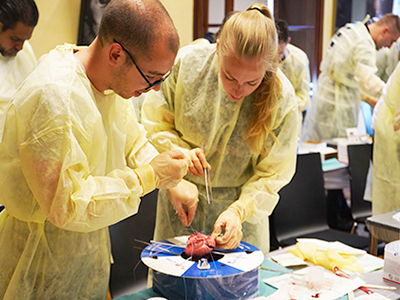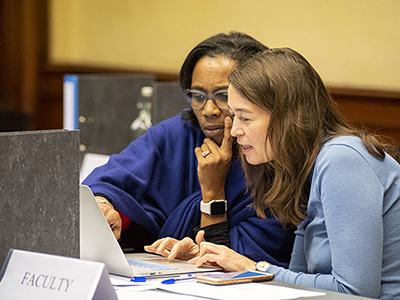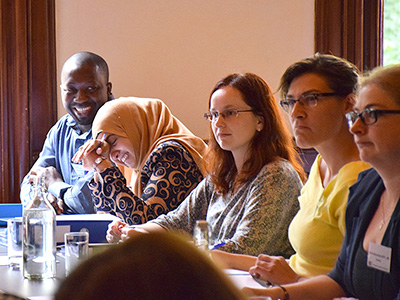Medical Education beyond Borders
Bridging the Gap in Medicine
After the Iron Curtain fell in 1991, doctors in former Eastern Bloc countries found themselves struggling to care for patients amidst collapsed medical systems and economies. Many left for better opportunities elsewhere, creating a brain drain of physicians and jeopardizing the health of millions living in the newly independent states. To improve local healthcare and keep doctors in their home countries, the American Austrian Foundation and the Open Society Foundations teamed up with Weill Cornell Medicine to create what is known today as the Open Medical Institute. The program launched in 1993 in Salzburg, Austria, where doctors from Central and Eastern Europe took part in week-long seminars designed to give them the knowledge and skills needed to deliver high-quality care back home. Conducted by some of the most distinguished experts from leading US and European institutions, the OMI evolved and, over time, extended opportunities to more than 28,300 fellow-physicians from 133 countries worldwide.
Promoting Brain Gain | Preventing Brain Drain
The migration of health professionals, especially doctors and nurses, has become a major global health concern. Acute shortages in the health workforce today represent a crisis that looks certain to worsen in the years ahead. In the past, the movement of health workers from poorer to richer countries was mainly driven by the political, economic, social, and professional circumstances of the individual. In recent years, however, the demand for health workers in many countries has greatly increased by changes in population dynamics and work ethics. In response, some of these countries are increasingly relying on imported labor, with damaging consequences for the healthcare systems in many developing countries, especially in the East and the South. For countries with few physicians, the loss of even a single doctor often has a major impact on the local healthcare service. For 30 years, the Open Medical Institute has been fully committed to addressing this global challenge, impacting the lives of thousands of healthcare professionals and their patients.
Knowledge Transfer | Experience Exchange | Capacity Building
The OMI follows a four-step approach offering access to state-of-the-art medical knowledge through seminars and webinars in different medical specialties, experience exchange through observerships at Austrian and American hospitals, and capacity building through satellite symposia and visiting professorships in the fellows’ home countries. The fourth step includes a multidisciplinary leadership program to complement the clinical education and enable OMI alumni to take on leadership positions in their healthcare systems. The content of the OMI programs is published electronically via the OMI e-learning platform. All the OMI educational opportunities consist of short-term fellowships, which last a minimum of one week and a maximum of three months. Thus, fellows remain integrated in their home institutions, but due to the OMI programs, gain access to faculty and colleagues from all over the world.
OMI Global Impact
Since 1993, the OMI has awarded more than 28,300 fellowships to physicians and healthcare professionals from 133 different countries, of whom more than 3,600 have also participated in the OMI observership program in Austrian and American hospitals.
Fellowships
Countries
Observerships
